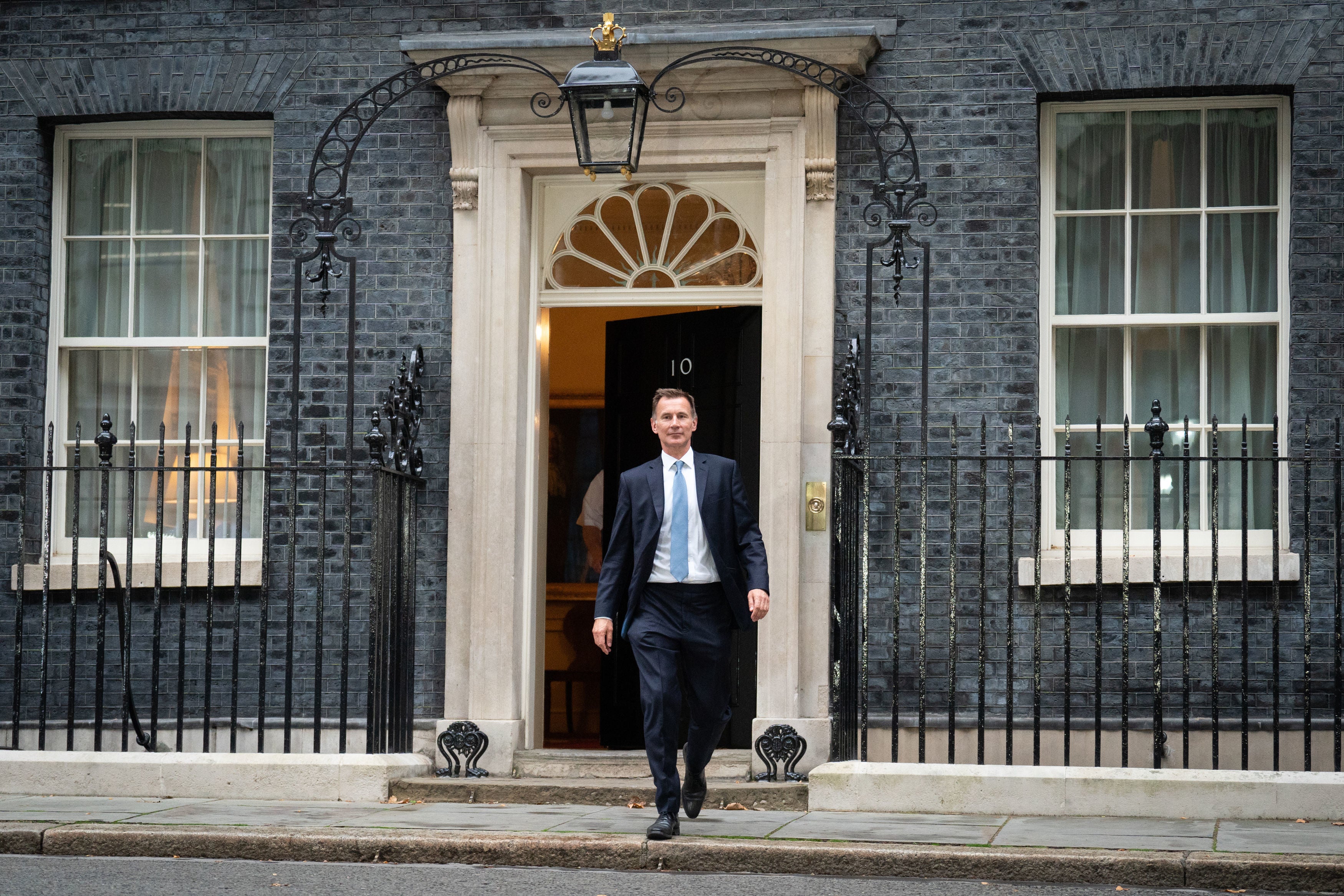Jeremy Hunt must persuade the markets that the UK has a credible plan
Editorial: A blueprint for what might be done is the plan set out by former chancellor Rishi Sunak for an increase in national insurance contributions and for higher corporation tax

Liz Truss and Jeremy Hunt have a few days to put together the basis for a credible plan for managing the UK’s finances. Their meeting at Chequers, the traditional country retreat of prime ministers, on Sunday, is the first substantive discussion they will have to sketch an outline of the policies that will be revealed in two weeks’ time on 31 October.
In a BBC interview with Laura Kuenssberg, the new chancellor gave a flavour of the shift in policy he was planning: “We’re going to have to take some very difficult decisions both on spending and on tax. Spending is not going to increase by as much as people hoped, taxes are not going to go down as quickly as people thought and some taxes are going to go up.”
That is one way of putting it. But it is not just a question of difficult decisions. It is a matter of credibility. The government has to put together a set of tax and spending policies that will enable the country to pull through not only this tough winter, but also what will at best be a year of very weak growth in 2023, and at worst, a full-blown recession. This has to be done against a background of international distrust and domestic dissent.
There is a blueprint for what might be done: the plan set out by Rishi Sunak, when he was chancellor, for an increase in national insurance contributions and for higher corporation tax. That outline would have to be modified in light of the surge in energy prices and the government’s current plan to cap prices for householders through this winter and next. It would also have to take into account the deterioration in prospects for growth next year.
If he were wise, the new chancellor would take the original plan as a starting point. It is the one still carrying the stamp of approval by the Office for Budget Responsibility (OBR), as it has not made a full report on the country’s economic and financial outlook since March. Mr Hunt should start from there, see how the outlook has changed, identify the modifications that need to be made to the tax and spending plans, and finally, get those new policy lines costed.
Were Jeremy Hunt to do this, he would have a reasonable chance of persuading the international bond markets that the UK had a credible plan, and is therefore a country in which they could safely invest. Long-term borrowing costs would come down, and the government would have some leeway to adjust its tax and spending plans should the global economic outlook deteriorate further, as seems likely. The governor of the Bank of England, Andrew Bailey, has warned that short-term interest rates might have to rise faster than previously expected.
To keep up to speed with all the latest opinions and comment, sign up to our free weekly Voices Dispatches newsletter by clicking here
However, while that line of fiscal prudence is essential to calm the markets, it will not be a comfortable proposition for the government to try to sell to UK voters – or indeed to the Conservative Party members who rejected it when they chose Liz Truss as leader instead of Rishi Sunak. So the temptation will be to adjust the plans – perhaps by putting more emphasis on spending cuts than tax rises – so that the mix is different.
It is a temptation that the new chancellor must avoid. He has to get his plans through the House of Commons, but he also has to satisfy the investors who will buy the gilts to finance those plans. The prime minister has learnt to her cost that her ideas have been utterly rejected by the markets. As a result her own position hangs by a thread. Crispin Blunt, the senior Tory backbencher, has voiced the opinion of many Conservative MPs that she cannot continue. But irrespective of whether she stays in office or not, the government has to go on.
So the new chancellor must seek to create credible fiscal policies. He has two weeks to do so. It will take a long time to rebuild the UK’s reputation for wise economic management, but Jeremy Hunt needs to make a start right away.
Join our commenting forum
Join thought-provoking conversations, follow other Independent readers and see their replies
Comments